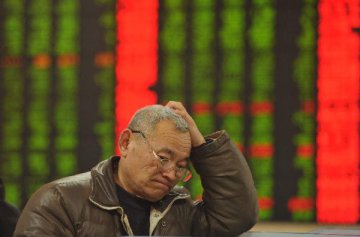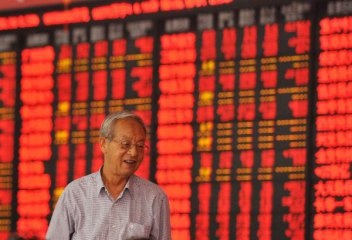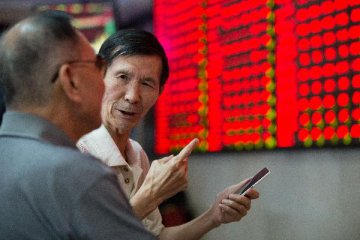The stock market started with highs led by the industrial internet and biomedical sectors last week, as a result of the favorable environment provided by the cycle of new technology.
However, as federal reserve raising the interest rate, the market pulled back sharply and ended with a slum on Friday after the Trump administration announced new trade restraints against China.
All the main benchmarks encountered great loss while trading volume has surged. The Shanghai Composite index dropped 3.58% to 3152.76 with ? 831 million volume. The Shenzhen Composite lost 611.13, or 5.53%, to 10439.99 with ?1 billion volume. The Growth Enterprise index was down 5.23% and ended with 1726.02. The Small and Medium-Sized index landed at 7150.37 with a 5.33% decline.
Directly benefited from the favorable policies, medicine, computer, and national defense industries attracted more funding interest. The market for enterprise sector is expected to be more elastic. The cycle of new technology has started recently.
One of the greatest features of this cycle is to further improve production efficiency and to create and meet new consumption demands. Advanced manufacturing and 5G are leading industries that enhance production efficiency and thus take advantage of this cycle.
At the same time, medicine, media, and food industries will experience sustainable growth in the cycle as they meet the needs of consumption upgrade.
Another focus of new technology is the industrial internet. Analysts points out that 2018 is the beginning year of industrial internet. China's industrial Internet industry is still in its early stage, and its future progress will be further accelerated.
As the federal reserve raised interest rates by 25 basis points to 1.5% - 1.75% last Thursday, global risk aversion gradually heated up. Looking at the overall market, this action will limit the evaluation of global risk assets.
According to the data from the past, the impact on A-share market is not as significant, and as long as capital controls are strengthened, and the market can maintain its current stability.
The U.S. President Donald Trump signed a presidential memorandum on March 22, which will impose a massive tariff on Chinese imports and restrict Chinese companies' investments in the U.S., according to the results of the Section 301 Action.
Affected by the trade war between China and the U.S., A-share market fell 3.39% on Friday, which is the biggest one-day drop since February 12. The industry and theme sectors went down largely, with only two major sectors, agriculture and precious metals, showing strong performance, among which the safe-haven gold stocks surged on.
China's commerce ministry fired back with threats of tariffs against $3 billion in U.S. goods. According to the memorandum, the impact will be imposed particularly on aerospace, information and communications technology, and machinery industries.
At the same time, industries with higher trade will also be affected. The current China-U.S. trade structure shows that China's exports to the U.S. are mainly machinery and equipment, miscellaneous products, textiles, and metal products.
American exports to China mainly focus on machinery and equipment, transportation equipment, chemical products, plastics and rubber products. Obviously, the A-share market is affected a lot, but whether the impact can be sustained depends on the development of the event.
However, the general support of the stock market is still relatively strong. After the release of fears, the market is likely to have a rebound next week.
Therefore, investors can observe and prepare to buy on dips. Medium-term investment can focus on medicine sector, and the short-term will centered on big data, industrial internet, and other industries with favorable policies.
However, as federal reserve raising the interest rate, the market pulled back sharply and ended with a slum on Friday after the Trump administration announced new trade restraints against China.
All the main benchmarks encountered great loss while trading volume has surged. The Shanghai Composite index dropped 3.58% to 3152.76 with ? 831 million volume. The Shenzhen Composite lost 611.13, or 5.53%, to 10439.99 with ?1 billion volume. The Growth Enterprise index was down 5.23% and ended with 1726.02. The Small and Medium-Sized index landed at 7150.37 with a 5.33% decline.
Directly benefited from the favorable policies, medicine, computer, and national defense industries attracted more funding interest. The market for enterprise sector is expected to be more elastic. The cycle of new technology has started recently.
One of the greatest features of this cycle is to further improve production efficiency and to create and meet new consumption demands. Advanced manufacturing and 5G are leading industries that enhance production efficiency and thus take advantage of this cycle.
At the same time, medicine, media, and food industries will experience sustainable growth in the cycle as they meet the needs of consumption upgrade.
Another focus of new technology is the industrial internet. Analysts points out that 2018 is the beginning year of industrial internet. China's industrial Internet industry is still in its early stage, and its future progress will be further accelerated.
As the federal reserve raised interest rates by 25 basis points to 1.5% - 1.75% last Thursday, global risk aversion gradually heated up. Looking at the overall market, this action will limit the evaluation of global risk assets.
According to the data from the past, the impact on A-share market is not as significant, and as long as capital controls are strengthened, and the market can maintain its current stability.
The U.S. President Donald Trump signed a presidential memorandum on March 22, which will impose a massive tariff on Chinese imports and restrict Chinese companies' investments in the U.S., according to the results of the Section 301 Action.
Affected by the trade war between China and the U.S., A-share market fell 3.39% on Friday, which is the biggest one-day drop since February 12. The industry and theme sectors went down largely, with only two major sectors, agriculture and precious metals, showing strong performance, among which the safe-haven gold stocks surged on.
China's commerce ministry fired back with threats of tariffs against $3 billion in U.S. goods. According to the memorandum, the impact will be imposed particularly on aerospace, information and communications technology, and machinery industries.
At the same time, industries with higher trade will also be affected. The current China-U.S. trade structure shows that China's exports to the U.S. are mainly machinery and equipment, miscellaneous products, textiles, and metal products.
American exports to China mainly focus on machinery and equipment, transportation equipment, chemical products, plastics and rubber products. Obviously, the A-share market is affected a lot, but whether the impact can be sustained depends on the development of the event.
However, the general support of the stock market is still relatively strong. After the release of fears, the market is likely to have a rebound next week.
Therefore, investors can observe and prepare to buy on dips. Medium-term investment can focus on medicine sector, and the short-term will centered on big data, industrial internet, and other industries with favorable policies.
























Latest comments